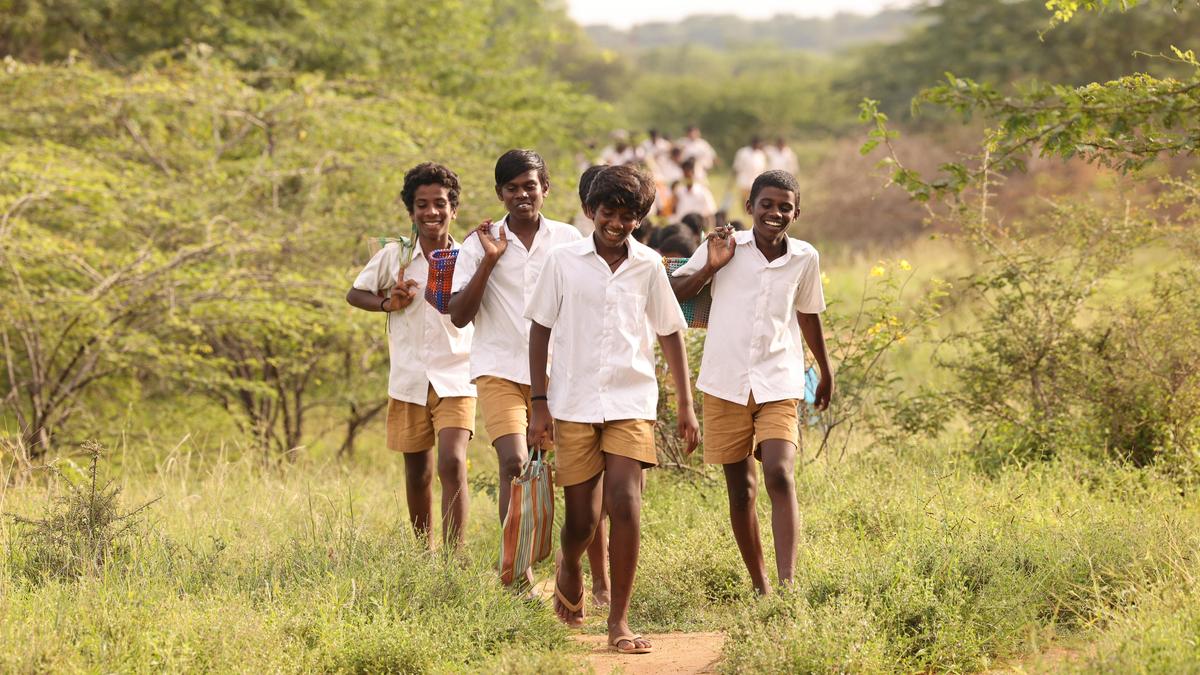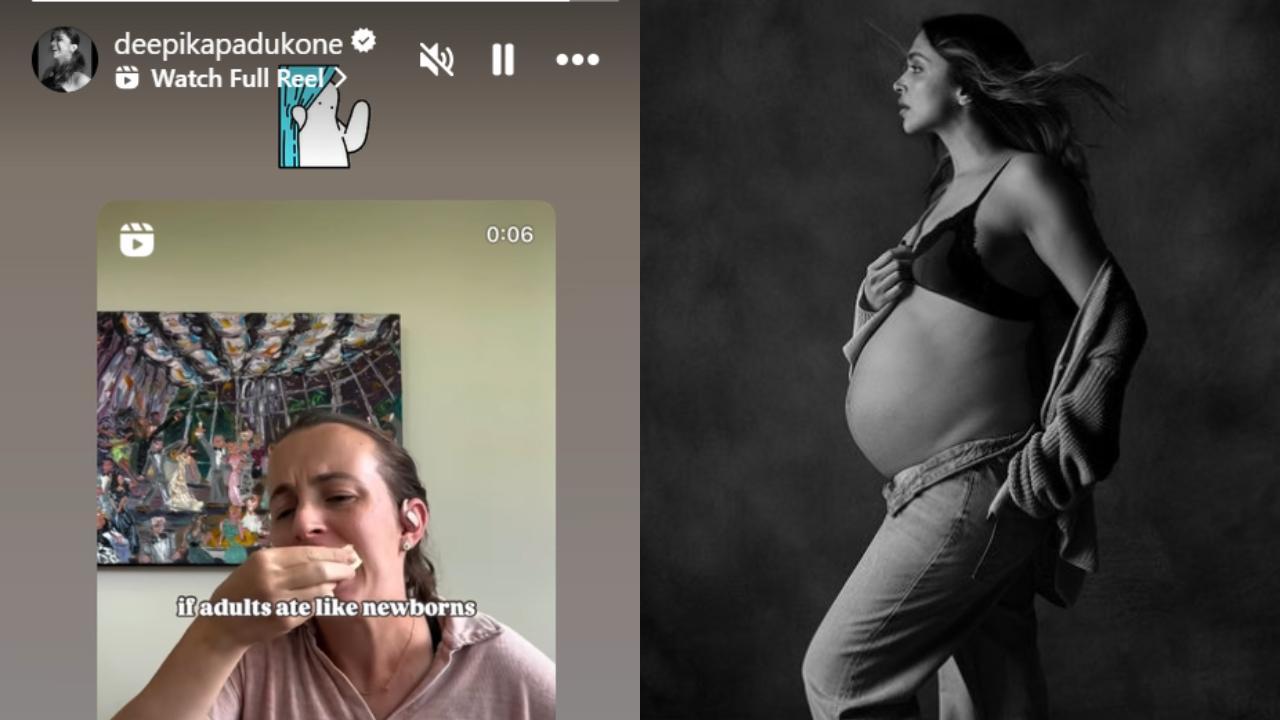Burdened beyond his years, a tender-hearted boy from a world far removed from contemporary cinema discourse sits at his bench in school. With the naivities of the age tussling inexplicable feelings he is suddenly brushed with, he takes out a pink, embroidered handkerchief from his pocket and takes a whiff. Like the presence of the person who gave it to him, the cotton too transports him to a world of comfort.
The situation, what the cloth means to him in that scenario, and the relief he feels from it, send him a cold shiver. Now, how would you capture this feeling? In Vaazhai , we see a slow-motion close-up of his feet, letting go of the cold stone floor underneath, and clenching the wooden footrest under his desk. This is just one of the countless moments in the film that make you ponder if cinema could, after all, make you feel the mud under your feet or the pangs of hunger on a sunny day.

In a particular scene, an empath would think of the taste of wind on a parched tongue. In his most personal work yet, director Mari Selvaraj displays exceptional control over his film language. A still from ‘Vaazhai’| Photo Credit:Special Arrangement Through the three feature films and his written work, including ‘Marakkave Ninaikkiren,’ Mari had attempted to ease himself of all the pain he had been carrying.
Vaazhai , a film he had wanted to make his debut with, is a tale inspired by a deep-seated trauma that, as he had said, had become the bedrock for who he has grown to become. This may explain the recurring elements from his previous works in Vaazhai — like the donkey in Karnan or the ‘angel’ in Pariyerum Perumal . A shot with a country-breed dog in the foreground reminds you of Karuppi from his debut film.
In a long wide shot, you see a boy climbing a hill and, you think of Karnan and Maamannan . Everything in Mari’s world of Vaazhai is meticulously crafted from life, and at its centre is Mari himself, as an inspired, fictionalised version — as Sivanaindhan a.k.
a Sivanenjam (Ponvel; a performance worthy of national glory), who lives in the village of Karunkulam with his sister, Vembu (Dhivya Duraisamy), his mother (Janaki). When we first see this child, he wets his pants after a nightmare, fearing for the worst to befall. For any other child, anxious bells would ring at the thought of going to school every Monday; but this was a Friday night.
Sivanaindhan is petrified of the weekends, as he has to join fellow community members to carry heaps of plantain at a plantation, an assignment he would avoid even by impaling his foot with a thorn to get excused. School is where he gets to be who he is: a child. And so he scores A-grades with ease and indulges in shenanigans with Sekar (Raghul), Sivanaindhan’s partner-in-crime, at his neighbourhood, plantation and school.
School is also where he could meet Poongodi (Nikhila Vimal), a teacher Sivananindhan is smitten. In her, he finds someone who takes him as he is and sees a mother who doesn’t punish him but rewards his honesty. To us, Poongodi reflects the larger society that is distanced beyond measure from the reality of Sivanaindhan.
Like Jyothi in Pariyerum Perumal , Poongodi too is clueless about the protagonist’s fight for basic privileges. A still from ‘Vaazhai’| Photo Credit:Special Arrangement Scenes featuring Sivanaindhan, Sekar and Poongodi are tender and endearing, and here’s where we find space for levity, like a hilarious track about the Rajinikanth-Kamal Haasan fandom. Mari’s writing shines as he pairs even this idea with a poignant counterpart in the film.
Many such ideas leave an afterthought or get a callback. In the very first scene, we see Sivanaindhan dance merrily at a funeral — death in the community means he need not go to the plantation. How dancing and death recur later on shocks you.
Another fantastic example is an adorable conversation about false promises; Sekar scares Sivanaidhan of a false promise he had made on a loved one. Later on, they would realise that it doesn’t matter, as their lives are dictated by a system bigger than them. But Vaazhai isn’t just a story about a childhood lost in duelling against the plantain heaps; it unfurls itself through the story of Kani (Kalaiyarasan), a communist who fights for the rights of the plantation workers against an exploitative boss and his lackeys.
As this subplot evolves, Sivanaindhan becomes more than a boy stuck between two worlds, as he witnesses the agonising horrors of his reality. Vaazhai is as measured a story gets to be told in modern-day mainstream cinema. From how frames are composed or how shots are juxtaposed, it’s poetry in motion.
With Theni Eswar’s frames, Mari shows us his mesmerising world, with humans, birds, ponds, and cattle living as one, to say how man’s greed disrupts all peace on Earth. In one scene, the grunting calls of a swarm of Red-naped ibis flying above are intercut with a dreadful turn of events as an ominous sign. Sounds and music become tools to punctuate moments, and composer Santhosh Narayanan becomes both an orchestra conductor and a soothing whisperer.
With Vaazhai , Mari Selvaraj shows you who he is, makes you smile, laugh, and think, and leaves you with a lump in your throat. In the end, when you see Sivanaindhan, you will wish you could comfort him however you can. And so, it’s a reminder that Sivanaindhaan does live in our world, and one hopes that making this artwork gave him some relief.
Vaazhai is currently running in theatres Copy link Email Facebook Twitter Telegram LinkedIn WhatsApp Reddit Tamil cinema / Indian cinema.



















